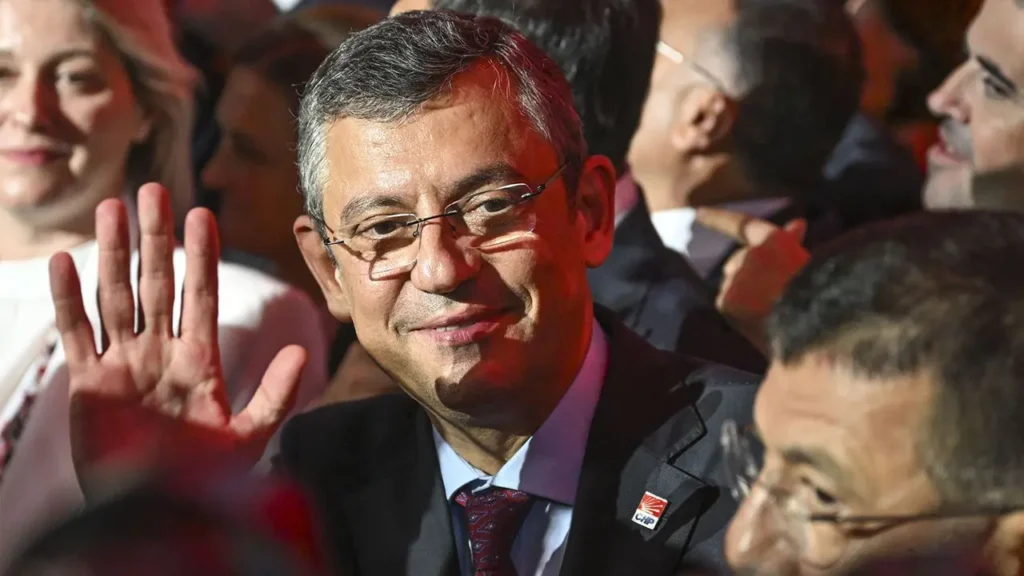In the Republican People’s Party (CHP) — which scored a sweeping victory in the last local elections, defeating the ruling party by historic margins in both the capital and the former capital — something is not going right. Although the things said to lie behind this malaise are varied, the set where they all overlap is the same: dirayet. Dirayet is a word that simultaneously denotes intelligence and skill. In everyday usage an additional shade of meaning, kudret — power or might — has attached itself to it. It is not a cunning devoid of intellect, nor an intellect bereft of practical ability, but the fusion of the two. What society perceives from this fusion is power. Throughout evolutionary history, dirayet has been the key to survival, to trust, and to the unity born of that trust. The absence of this key is precisely what still keeps the CHP from being the natural choice for the crowds who once managed to carry the party, with its roof, its walls, and its doorway, into government.
For Turks, whose satisfaction with the mystical presentation of their pragmatism spans the ages, the very first national inscription carved in stone proclaims that the ruler, endowed with kut — the heavenly mandate to govern — owes his people one overriding duty: “to feed the hungry and clothe the naked.” What happens when he falters in that primary duty? When he cannot manage, when he cannot cope, when he does not appear resolute? Then the people conclude that God has withdrawn the mandate of rule from that leader. They want to install someone else, and if they want it strongly enough, they do so. For the desire to grow strong enough, there must be a more dirayetli alternative. The rationality of this system is impossible to miss. In my view, one of the most admirable national traits of the Turks is precisely this inclination toward pragmatic choice. The late Süleyman Demirel’s observation that “there is no government the cooking pot cannot topple” is nothing but an expression of this very reality.
I would like to remind those shouting, “So why does the government not change even in this time of economic hardship?” that I have already given the answer above: for change to be desired strongly enough, a suitable alternative has to be present.
I do not agree with statements such as “In fact, the CHP’s leader is not its current chair.” Whoever sits on the horse is regarded by society as the rider, and in that sense Mr Özgür Özel is the one on the horse. Mr Özel is known for the politeness, grace, and warmth he shows in personal relations. These, of course, are the ABCs of being a “good person,” and I also believe his term as group deputy chair was successful. Yet it is no secret that he has gone through a spell of horsemanship in which both the horse and the arena find him ill-at-ease. Day by day he reinforces the image of an irrepressible young rascal. He cannot stick to the script; almost every off-script remark drags the CHP into debates where it is not a party. His curious, high-pitched declarations while the government’s own sentences announcing a new “opening” were still hot off the press are further examples. So too was his call on the government to “talk with Assad” at a moment when Assad looked about to fall. In truth, he may have fallen victim to the guidance of his deputy İlhan Uzgel on the Syria issue, for Mr Uzgel also managed to hand the government yet another video to show on the campaign trail with his line, “Did we have to take Aleppo just because Assad wouldn’t meet?” Throughout history it has been rare for “good” academics to make good politicians; in our country it is almost unheard of. The choice to place Professor İlhan in what may be the single most important post after the party chair—in a position where the public expects to see dirayet—can be taken as proof that the CHP lacks even the faintest institutional notion of this very “dirayet”.
You can think of dirayet as the keystone in a bridge arch—the single, crucial stone that locks the rest into place, letting every block draw strength from the others and stand firm. No matter how fine the stones or how perfect the mortar, without that indispensable keystone the structure will not hold. The indispensable keystone the people look for in those who govern them is dirayet. It is so essential that, if it is missing, even if you outshine your rival in the remaining ninety-nine items on the checklist, you still will not gain true ascendancy. Is that unfair? Perhaps. But redefining reality does not change it.
Having addressed what is most lacking, we must also point to what is most present.
In recent years the CHP has taken significant steps toward engaging segments of society it once avoided, and this has made a serious contribution to social peace. Those steps have carried internal political costs as well. The CHP’s share in creating a climate of reduced polarisation—a terrain the ruling party would never choose—is enormous, and for Türkiye that matters more than the results of elections that recur at intervals. Without this groundwork, it would have been impossible to win popular support in places like Adıyaman, Kastamonu, Üsküdar, Eyüpsultan, and many others. The fact that this stance continues despite a change in the party’s top leadership is encouraging for the future. Once today’s dust and din have settled, the gains Türkiye has reaped from this institutional effort to embrace everyone will be better understood.
If the CHP’s kızıl elma—its ultimate prize—is to govern, it is pointless to look outside itself for the number-one obstacle in its path. What the CHP lacks is precisely what the AK Party has: number one—dirayet.


